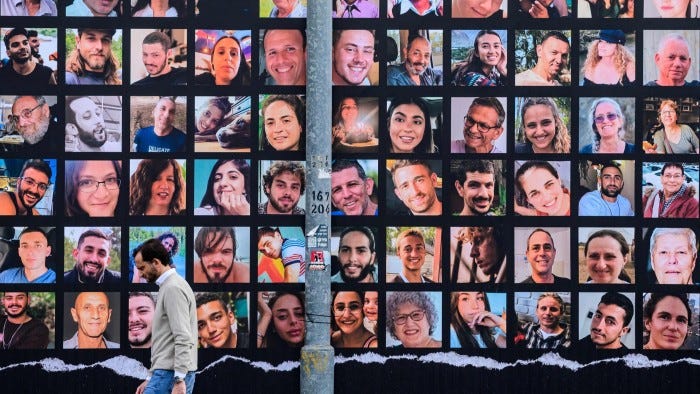Eighty-two years since Raczyński’s Note and The Repeated Tragedy of Inaction
Holocaust Warnings: The Deadly Consequences of Years of Ignoring Evil
Eighty-two years ago today, on December 10, 1942, Edward Raczyński, the Polish government-in-exile’s ambassador in London, delivered a harrowing message to the Allies. Known as Raczyński’s Note, the document detailed the systematic extermination of Jews in Nazi-occupied Poland. It was one of the earliest official accounts of the Holocaust reaching Western leaders. Raczyński's appeal, supported by the eyewitness reports of Jan Karski, implored the Allies to act to save the millions of Jews being slaughtered in concentration camps like Auschwitz. But the world was slow to move.
Despite the undeniable evidence presented—naming extermination camps like Auschwitz, Treblinka, Bełżec, and Sobibor—years passed before the Allies took meaningful action against the Nazi regime. These names, synonymous with industrialized genocide, were explicitly mentioned in Raczyński’s Note and other early reports, leaving no room for doubt about the scale of the atrocities. Yet, when the Allies finally acted, it wasn’t to save the Jews or dismantle the machinery of genocide. Their intervention came only after Hitler’s ambitions directly threatened their own borders, cities, and people. Millions of lives could have been saved had the world acted when these warnings first arrived. Instead, the Jews of Europe were left to fend for themselves in the face of unimaginable horror.
The Repeated Tragedy of Inaction
Fast forward to today, and the echoes of this apathy reverberate once more. In Israel, the plight of hostages abducted during Hamas’s October 7 attacks remains a stain on the conscience of the international community. Families have waited over 14 months for the world to demand their release with the urgency such human suffering deserves. Instead, calls for ceasefires overshadow demands for justice. Calls for humanitarian aid flow freely to Gaza, yet those abducted, some of them infants, are treated as a political afterthought.
The parallels are haunting. During the Holocaust, international actors justified their inaction with claims of disbelief or logistical difficulty. Today, similar excuses are offered as terrorist organizations like Hamas hold civilians hostage while openly declaring their intent to destroy the Jewish State and people. The moral clarity that should compel action has again been obscured by politics, competing narratives, and a grotesque indifference to Jewish suffering.
A Call to Wake Up
What makes this indifference even more alarming is the broader ideological threat. Hamas and its supporters don’t merely oppose Israel; they reject the values of human rights, democracy, and freedom that underpin Western civilization. Their worldview seeks the destruction not only of the Jewish state but also of the pluralistic societies many of us call home.
It’s a chilling reminder that the forces targeting Israel today are not contained by geography or limited in their ambitions. Just as the Nazis’ aggression eventually enveloped the entire Western world in conflict, the ideologies fueling terrorism today threaten global stability.
History has taught us that waiting to act has a cost measured in lives lost. It took the Allies years to acknowledge the horrors of the Holocaust, and by the time they acted, six million Jews were already dead. What will it take today for the world to prioritize the release of hostages, hold Hamas accountable, and stand unequivocally with Israel in its fight for survival?
How many more innocent lives must be lost before the international community realizes that those who target Israel are part of a larger war on the very values the free world claims to cherish?
The choice is yours. You can learn from the failures of the past, or you can continue the cycle of delayed responses and moral equivocation. The question is What will it take for the world to act—not out of self-preservation, but because it is the right thing to do?






